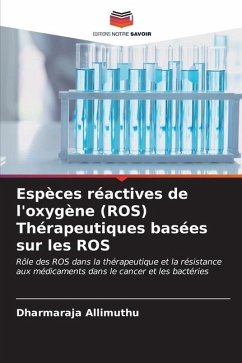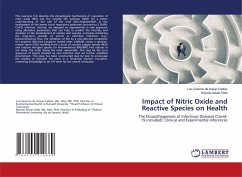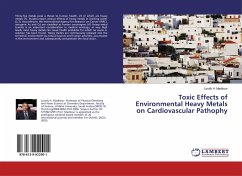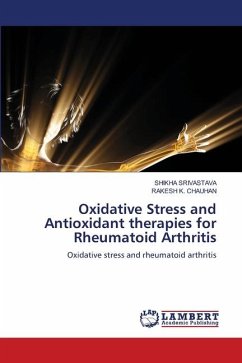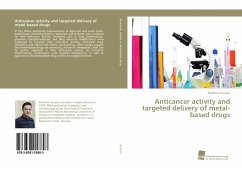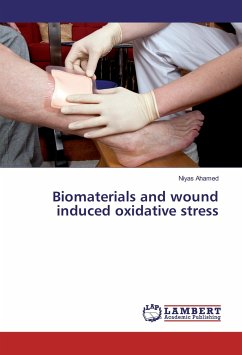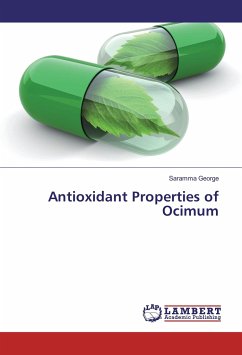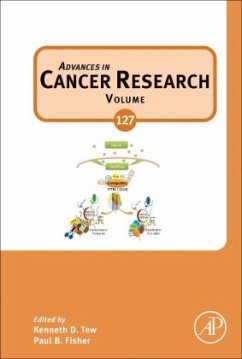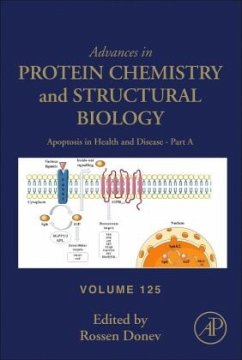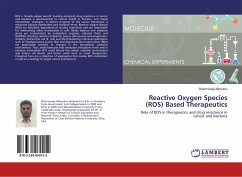
Reactive Oxygen Species (ROS) Based Therapeutics
Role of ROS in therapeutics and drug resistance in cancer and bacteria
Versandkostenfrei!
Versandfertig in 6-10 Tagen
24,99 €
inkl. MwSt.

PAYBACK Punkte
12 °P sammeln!
ROS a "double edged sword": Evading persistent drug resistance in cancer and bacteria is quintessential to restore health in humans, and impels intervention strategies. A distinct property of the cancer phenotype is enhanced glucose metabolism and oxidative stress. Reactive oxygen species (ROS) are metabolic byproducts of aerobic respiration and are responsible for maintaining redox homeostasis in cells. Redox balance and oxidative stress are orchestrated by antioxidant enzymes, reduced thiols and NADP(H) cofactors, which is critical for cancer cells survival and progression. Similarly, Escher...
ROS a "double edged sword": Evading persistent drug resistance in cancer and bacteria is quintessential to restore health in humans, and impels intervention strategies. A distinct property of the cancer phenotype is enhanced glucose metabolism and oxidative stress. Reactive oxygen species (ROS) are metabolic byproducts of aerobic respiration and are responsible for maintaining redox homeostasis in cells. Redox balance and oxidative stress are orchestrated by antioxidant enzymes, reduced thiols and NADP(H) cofactors, which is critical for cancer cells survival and progression. Similarly, Escherichia coli (E. coli) and life-threatening infectious pathogens such as Staphylococcus aureus (SA) and Mycobacterium tuberculosis (Mtb) are appreciably sensitive to changes in the intracellular oxidative environment. Thus, small molecules that modulate antioxidant levels and/or enhance intracellular ROS could disturb the cellular oxidative environment and induce cell death, and hence could serve as novel therapeutics. Presented here are a collection of approaches that involve ROS modulation in cells as a strategy to target cancer and bacteria.



